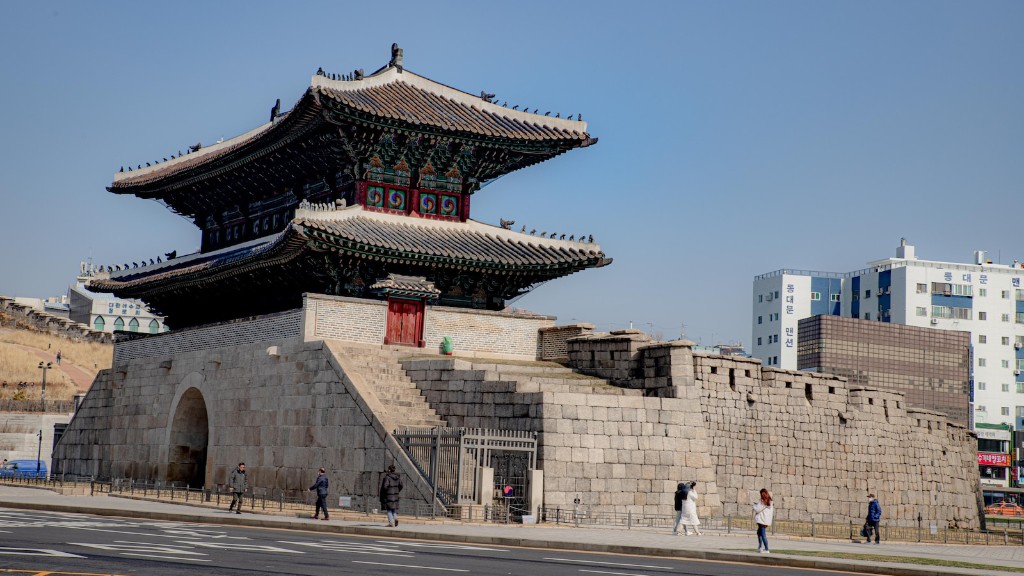North Korea has been posing a major threat to the international community since it started its controversial nuclear and ballistic missile programs. It has now developed a nuclear bomb but, the critical question is: can North Korea actually deliver a nuclear weapon?
The answer depends on a variety of different factors, but one of the most important is the state of North Korea’s delivery systems. North Korea has been developing various types of rockets that could be used to deliver nuclear payloads, but it is unclear if they have perfected the technology needed to deliver nuclear weapons effectively.
North Korea has conducted at least four nuclear weapons tests since 2006, and many experts believe that the country has now achieved a level of technological sophistication to produce smaller and lighter nuclear warheads. While this may mean that North Korea could theoretically fit a nuclear device onto a long-range missile, it is unclear if the country has developed the technology to ensure that the warhead can successfully reach its target.
In addition to long-range missiles, North Korea is also believed to have a number of other weapons that could be used to deliver nuclear payloads, such as bombers and submarines. However, these systems have never been tested in a live-fire situation, so it is difficult to know just how effective they could be in the delivery of a nuclear weapon.
Moreover, while North Korea may possess the capability to deliver a nuclear payload, it is not yet clear whether the country is prepared to actually use such weapons. Despite its aggressive rhetoric and belligerent behavior, North Korea has not yet launched any nuclear strikes, and it is unclear if the leadership would be willing to do so in the future.
In conclusion, while North Korea has demonstrated the capability to produce and possibly deliver a nuclear weapon, it is still unclear if the country is prepared to use these weapons in an aggressive manner. As such, further research is needed to determine if North Korea can in fact deliver a nuclear strike.
Military Strength of North Korea
North Korea has one of the largest standing armies in the world and is believed to possess a significant amount of conventional weaponry. It is thought that North Korea has over one million active military personnel and over five million reserves. It is also believed that North Korea has numerous facilities for the production and storage of nuclear, chemical, and biological weapons.
North Korea is also frequently involved in military exercises and public displays of strength designed to act as a deterrent against the United States and other western countries. This has resulted in increased tension between North Korea and other countries in the region.
Additionally, North Korea’s military has ties to foreign terrorist organizations, such as Hezbollah and Hamas. This suggests that North Korea may have access to a variety of weapons, including those capable of delivering a nuclear payload, that it could potentially use to attack other countries.
Overall, North Korea’s vast military strength and its ties to foreign terrorist organizations mean that the country is in a prime position to deliver a nuclear weapon if it ever felt that it was necessary to do so.
Regional Security
The threat posed by North Korea’s nuclear program is compounded by the fact that the country is located in a highly volatile region. North Korea is bordered by powerful countries such as China, Japan, South Korea, and Russia and is in close proximity to areas of high military activity such as the Korean peninsula and the Taiwan strait.
There is also the possibility that North Korea may sell or share its technology with other countries in the region. This could result in the spread of nuclear technology to countries such as Iran, Pakistan, and China, which could have significant implications for global security.
Overall, the threat posed by North Korea’s nuclear program is compounded by the fact that North Korea is surrounded by powerful countries, and could potentially share or sell its technology to other countries.
International Sanctions
The international community has responded to North Korea’s nuclear program by imposing a variety of sanctions against the country. These sanctions have had an adverse effect on the North Korean economy, resulting in increased poverty and starvation in many parts of the country.
Sanctions have also had an effect on North Korea’s nuclear program, leading to a decrease in resources and difficulty in acquiring materials necessary for the development of their weapons. This has resulted in a slower pace of development, which has been a source of frustration for North Korean leaders.
It is unclear how long these sanctions will remain in place, but it seems likely that they will remain in effect until North Korea agrees to abandon its nuclear program and comply with international regulations.
U.S Policy
The United States has been at the forefront of international efforts to contain North Korea’s nuclear program and has taken a hardline approach to the country, including the imposition of sanctions and military drills in the region.
The United States has made it clear that it will not accept a nuclear-armed North Korea and has indicated that it is prepared to use military force if necessary. This has resulted in an increasingly hostile relationship between North Korea and the United States.
At the same time, the United States has also opened channels of communication with North Korea and has indicated a willingness to negotiate with the country if it agrees to abandon its nuclear program. The United States has even offered to lift sanctions if Pyongyang complies with its demands.
The Impact of Nuclear Weapons
The prospect of a nuclear-armed North Korea has evoked fears among many experts, who worry about the potential implications of such a development. It is feared that a nuclear-armed North Korea could be a destabilizing force in the region and could potentially spark a nuclear arms race.
Furthermore, such a development could potentially lead to an increase in global tensions as North Korea could use its nuclear weapons as a bargaining tool or as a means to intimidate its adversaries.
Finally, it is unclear how the international community would respond in the event that North Korea actually uses its nuclear weapons. It is possible that North Korea could launch a devastating attack against a neighboring country and trigger a large-scale conflict, with devastating consequences.
Conclusion
In summary, while North Korea has made progress in its nuclear and ballistic missile programs, it is still unclear if the country can actually deliver a nuclear weapon. North Korea’s vast military and its ties to foreign terrorist organizations mean that the country is in a prime position to deliver a nuclear strike, but this will only be possible if the country is prepared to actually use such weapons. International sanctions have had an adverse effect on North Korea’s nuclear program, but it is unclear how long these sanctions will remain in effect. Finally, the prospect of a nuclear-armed North Korea has evoked fears among many experts and it is unclear how the international community will respond in the event that North Korea uses its weapons.





